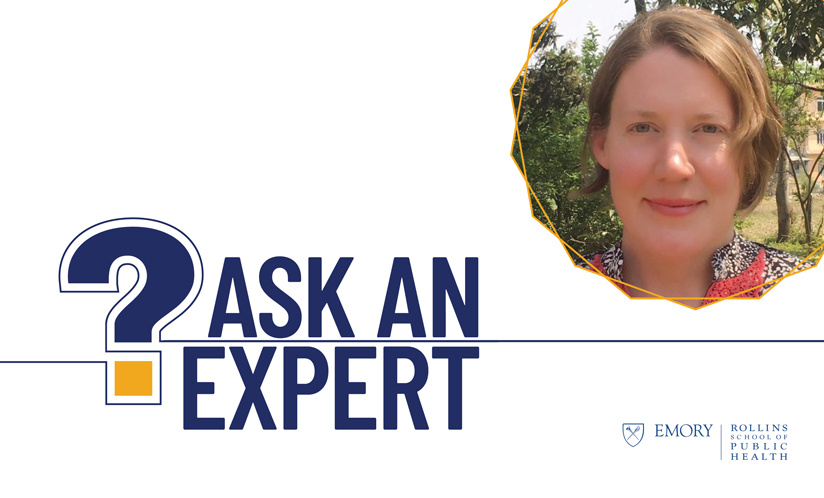Ask an Expert: Examining the Collective Trauma of War with Cari Jo Clark

The public health impact of armed conflict and war have immediate, visible ramifications on entire populations, along with long-term health effects that span generations. Humanitarian crises unfolding in Gaza, Yemen, Sudan, Somalia, Democratic Republic of the Congo, and more are living examples of this.
Aside from the direct physical harms resulting from combat and bombings, there are also associated health outcomes caused by or made worse by war including:
- Infectious disease spread
- Increased sexual and domestic violence
- The lack of basic medical services due to damaged or destroyed health care infrastructures
- Limited or no access to clean water and sanitation
- Starvation and malnutrition
- Environmental exposures
- Mental health degradation
Cari Jo Clark, ScD, associate professor of global health, has spent much of her career working in developing countries and humanitarian zones impacted by war. Her area of interest is strongly centered in understanding the factors that shape women’s risk of violence in settings of natural and human-made disasters.
“Even in times of war, women's exposure to domestic violence continues to be the predominant exposure of violence in most conflicts,” says Clark. “In most settings, it's a continuation or an exacerbation of what was already going on beforehand. And then the conflict setting just changes the dynamics and increases risks for women.
“If you want to reduce women's risk of violence, it's very easy. The answer is in politics and patriarchy. There are people in charge who can change women's lives dramatically with hard decisions.” But it is not a high enough political priority.
Here, she shares her insights on the human cost of war through the lens of research and her personal experiences working with refugees and people living in containment settings.
Talk to me a bit about the impact of conflict and containment on intimate partner violence.
We saw during COVID how difficult it was for domestic violence survivors to get out and get help. There was more stress and financial insecurity, mobility restrictions, making it more difficult to diffuse or deescalate tense situations, so escalation was more likely.
In conflict settings, we see increased rates of intimate partner violence too due to several things, including stress, insecurity, the proliferation of weapons, militarization of everyday behavior, and at least temporary normative changes that can challenge pre-existing gender roles, obligations, and opportunities.
As you’re watching what’s happening to people in Gaza right now and in other active conflict zones, what are the biggest threats you’re seeing to health?
In Gaza, the entire health care infrastructure has been destroyed. It isn’t just the short-term impact on people, communities, livelihoods, and the health system that we are seeing with conflicts. In instances like Gaza, it will be decades of damage and a collective trauma on both sides that has shaken everyone’s sense of security, safety, and well-being. The human, social and physical infrastructure of communities is being undone.
What does research tell us about how war and exposure to violence impact various societies’ concepts of masculinity?
There has been some really interesting research in Gaza and the West Bank looking at how war gets played out on women's bodies. So you saw women's roles changing quite dramatically. That sort of role-change in the household led to some men feeling emasculated and having their concepts of themselves and what it means to be a man challenged. When you think about the social consequences of the war, in addition to proliferation of guns and weapons, there are these dueling challenges of this sort of militarized hyper masculinity and emasculation.
How do we see this play out in young boys who witness extreme violence or grow up in the middle of conflict?
In the West Bank, there is trauma in being repeatedly humiliated and being treated like a terrorist. There’s a heavy mental weight to being a kid and being forced to cross checkpoints just to get to school or the grocery store, or for the family to have to seek permission in order to visit family elsewhere. These kids are growing up under a tremendous amount of tension. The children in Gaza are living with trauma on top of trauma and we know those circumstances increase your risks of mental, behavioral, and physical health risks dramatically. They are trapped in an unsafe place and cannot get out.